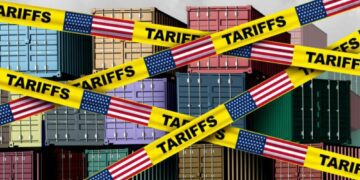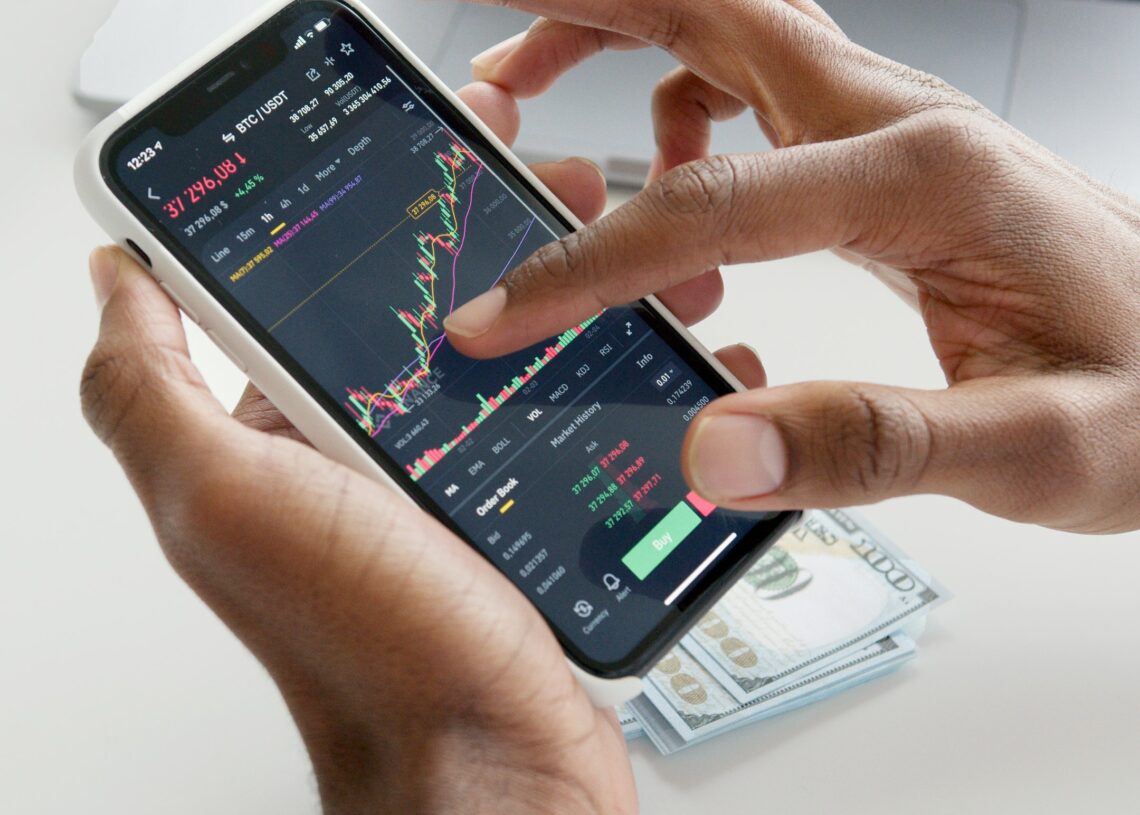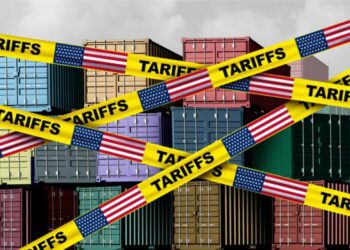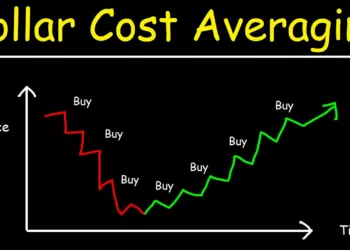In the fast-paced world of futures and forex trading, understanding the intricacies of human behavior can be the key to success. This is where the fascinating field of behavioral finance comes into play. By combining insights from psychology and finance, behavioral finance seeks to unravel the mysteries behind why people make certain financial decisions and how their behavior influences market dynamics.
At its core, behavioral finance acknowledges that humans are not always rational beings when it comes to making financial choices. Cognitive biases, emotions, and social factors can significantly impact our decision-making process, often leading to suboptimal outcomes. Recognizing and understanding these behavioral patterns is of paramount importance for traders in futures and forex markets.
By delving into the world of behavioral finance, traders can gain a deeper understanding of why markets behave the way they do and how individual behavior influences price movements. Armed with this knowledge, traders can make more informed decisions, manage risks more effectively, and potentially capitalize on market inefficiencies.
In the following sections, we will explore the basics of behavioral finance and its application in futures and forex trading. We will delve into cognitive biases that can cloud judgment, the powerful role of emotions in shaping trading outcomes, and the impact of herd mentality on market behavior. By examining these concepts, we can develop strategies to navigate the complexities of futures and forex trading with a behavioral finance lens.
Join us as we uncover the fascinating world of behavioral finance and discover how it can empower traders to make better-informed decisions in futures and forex markets.
The Basics of Behavioral Finance
To understand the impact of behavioral finance on futures and forex trading, let’s delve into its key principles and how they shape traders’ decision-making processes.
A. Cognitive Biases
Cognitive biases are inherent mental shortcuts or patterns of thinking that can lead to irrational and biased judgments. These biases often arise from our need to simplify complex information or rely on heuristics, which can result in systematic errors. In the context of trading futures and forex, cognitive biases can significantly impact decision-making.
For example, confirmation bias, the tendency to seek out information that confirms pre-existing beliefs, can cause traders to overlook critical data that contradicts their trading thesis. Loss aversion bias, the preference for avoiding losses rather than acquiring gains, can lead to holding onto losing positions for too long in the hope of a turnaround. Overconfidence bias, the belief in one’s abilities to outperform the market, can result in excessive risk-taking.
B. Emotions
Emotions play a vital role in the world of trading, and understanding their influence is crucial for futures and forex traders. Fear, greed, and regret are among the emotions that can drive decision-making and impact trading outcomes.
Fear often manifests as a result of uncertainty or market volatility. It can lead traders to avoid potentially profitable opportunities or exit positions prematurely out of fear of further losses. Greed, on the other hand, can cloud judgment and prompt traders to take excessive risks, chasing high returns without considering potential downsides. Regret, when not managed properly, can prevent traders from objectively assessing their trades and adjusting their strategies.
C. Social Factors
Human behavior is highly influenced by social interactions, and the same holds true for financial markets. Herd mentality, or the tendency to follow the crowd, can create market bubbles or exaggerate market movements. When traders collectively exhibit herd behavior, it can lead to market inefficiencies and increased volatility.
Additionally, social media platforms and online communities can amplify the impact of social factors on trading decisions. Market sentiment, shaped by collective opinions and emotions expressed through these channels, can drive market trends and influence traders’ actions.
By understanding cognitive biases, managing emotions, and being aware of social factors, futures and forex traders can mitigate the potential negative impact of behavioral biases and make more rational and objective decisions.

Behavioral Finance in Futures Trading
Futures trading is not immune to the impact of behavioral finance. Traders in this market are susceptible to cognitive biases, emotions, and social factors that can significantly influence their decision-making processes.
A. Cognitive Biases in Futures Trading
Cognitive biases can distort traders’ judgment and lead to irrational decision-making in the futures market. Here are a few common biases and their potential impact:
- Loss aversion: Traders often exhibit a stronger aversion to losses than the desire for gains. This bias can cause traders to hold onto losing positions for longer than necessary, hoping to recover their losses, instead of cutting their losses and moving on.
- Confirmation bias: Traders tend to seek information that confirms their pre-existing beliefs or biases. This can prevent them from objectively evaluating contradictory evidence or considering alternative viewpoints, leading to missed opportunities or excessive risk-taking.
- Overconfidence: Traders may overestimate their abilities to predict market movements and outperform the market. Overconfidence can lead to excessive risk-taking, ignoring proper risk management, and taking positions that are beyond one’s capabilities.
B. Emotions and Trading Psychology
Emotions play a significant role in futures trading, impacting decision-making and overall trading performance. Here are some key aspects related to emotions and trading psychology:
- Fear, greed, and regret: Fear of market volatility or uncertainty can lead to missed trading opportunities or premature exits from winning positions. Greed can drive traders to take excessive risks, chasing higher returns without proper analysis. Regret, if not managed effectively, can cloud judgment and prevent objective assessment of trades.
- Emotional intelligence: Emotional intelligence, the ability to recognize and manage emotions, is vital for successful futures trading. Traders with high emotional intelligence can better navigate market fluctuations, control impulses, and make rational decisions.
- Improving trading psychology: Developing a strong trading psychology is crucial for futures traders. Techniques such as keeping a trading journal, setting realistic goals, practicing self-discipline, and seeking support from mentors or fellow traders can help improve emotional control and decision-making.
C. Herd Mentality and Market Behavior
Herd mentality and social factors can heavily influence futures trading. Consider the following points:
- Herd mentality: Traders often feel the urge to follow the crowd, assuming that the majority must be right. However, herd behavior can result in market bubbles, exaggerated price movements, and increased volatility. It is important for traders to think independently and not blindly follow others’ actions.
- Market sentiment: Market sentiment refers to the overall attitude or emotions of traders towards a particular market or asset. It can be influenced by social factors and can drive trends and market behavior. Being aware of market sentiment can provide insights into potential shifts in supply and demand dynamics.
- Independent thinking: Encouraging independent thinking is crucial in futures trading. Traders should conduct their own research, analyze market fundamentals, and make decisions based on their own analysis rather than relying solely on the opinions or actions of others.
By understanding and managing cognitive biases, emotions, and the impact of herd mentality, futures traders can enhance their decision-making abilities, mitigate risks, and navigate the market with a more objective and independent mindset.

Behavioral Finance in Forex Trading
Forex trading, with its dynamic and global nature, is deeply influenced by behavioral finance. Traders in the forex market encounter cognitive biases, emotional challenges, and recurring behavioral patterns that shape their trading outcomes.
A. Cognitive Biases in Forex Trading
Forex traders are susceptible to various cognitive biases that can distort their judgment and decision-making process. Here are a few biases commonly observed in forex trading:
- Anchoring bias: Traders may rely too heavily on a specific piece of information, such as an initial exchange rate, and anchor their subsequent decisions around it. This bias can lead to missed opportunities or holding onto positions longer than necessary.
- Availability bias: Traders tend to rely on readily available information or recent events when making trading decisions. This bias can result in overlooking crucial historical data or failing to consider a broader range of factors that may impact currency movements.
- Hindsight bias: Traders often have the tendency to believe they could have predicted past market movements accurately. This bias can lead to overconfidence, causing traders to take positions based on historical outcomes that may not necessarily repeat.
B. Emotional Challenges in Forex Trading
Emotions can significantly impact forex trading outcomes. Understanding and effectively managing these emotional challenges is crucial for success in the forex market. Consider the following aspects:
- Dealing with uncertainty: Forex markets are inherently unpredictable, and traders often face uncertainties regarding currency movements. Managing the anxiety and stress associated with uncertainty is essential to avoid impulsive decision-making.
- Handling losses: Losses are inevitable in forex trading. Traders must develop resilience and avoid letting losses affect their emotions and subsequent trading decisions. Learning from losses and adhering to risk management strategies are vital in maintaining emotional balance.
- Managing risk: Forex trading involves risk, and fear of losing money can influence decision-making. Implementing effective risk management techniques, such as setting appropriate stop-loss orders and position sizing, can help traders maintain emotional discipline.
C. Behavioral Patterns and Currency Markets
Currency markets exhibit recurring behavioral patterns that can be analyzed and exploited by forex traders. Consider the following points:
- Trends and reversals: Forex markets often display trends, which can be driven by the collective behavior of traders. Recognizing and riding these trends can be a profitable strategy. Additionally, understanding the potential for trend reversals can help traders exit positions at opportune moments.
- Price patterns: Forex charts often exhibit recognizable price patterns, such as head and shoulders, triangles, or double tops/bottoms. These patterns are a reflection of market psychology and can provide insights into potential future price movements. Understanding these patterns can help traders identify favorable entry and exit points.
Behavioral finance provides valuable insights into the analysis and exploitation of these behavioral patterns, allowing traders to make more informed decisions based on market behavior and dynamics.
Brands in Behavioral Finance
Several prominent brands and organizations have made significant contributions to the field of behavioral finance, particularly in the context of futures and forex trading. Let’s explore a few of them and their initiatives:
- Dalbar, Inc.: Dalbar is a leading research firm specializing in investor behavior and performance analysis. They provide insights into the role of behavioral finance in investment decision-making and offer industry reports and tools to help investors understand and navigate the impact of behavior on financial outcomes. Learn more about their research and services at www.dalbar.com.
- Betterment: Betterment is a popular robo-advisory platform that incorporates behavioral finance principles into its investment strategies. They utilize advanced algorithms to optimize portfolios based on investors’ goals and risk preferences while considering the impact of behavioral biases. Check out their website to learn more about their approach: www.betterment.com.
- MarketPsych: MarketPsych is a company that specializes in analyzing market psychology and sentiment. They offer tools and data services that help traders and investors understand and leverage behavioral factors in their decision-making. Their platform provides real-time sentiment analysis and can be a valuable resource for those interested in behavioral finance in the financial markets. Explore their offerings at www.marketpsych.com.
- Sensible Markets: Sensible Markets is a financial technology company that focuses on applying behavioral finance principles to enhance trading experiences. They aim to provide traders with an intuitive and user-friendly platform designed to address behavioral biases, promote better decision-making, and improve overall trading performance. Visit their website to learn more: www.sensiblemarkets.com.
These brands and organizations are actively contributing to the understanding and application of behavioral finance principles in futures and forex trading. Exploring their websites can provide further insights and resources for traders interested in incorporating behavioral finance into their trading strategies.
Bottom Line
In this blog post, we have explored the fascinating world of behavioral finance and its relevance to futures and forex trading. Here’s a recap of the key points discussed:
- Behavioral finance involves understanding how cognitive biases, emotions, and social factors influence financial decision-making.
- Cognitive biases, such as loss aversion and confirmation bias, can impact futures and forex traders, leading to suboptimal decisions and potential losses.
- Emotions play a significant role in trading psychology, and managing fear, greed, and regret is essential for successful futures and forex trading.
- Herd mentality and social factors can influence market behavior, and traders should strive to think independently and avoid blindly following the crowd.
- Prominent brands and organizations, such as BEDAG, Dalbar, Betterment, MarketPsych, and Sensible Markets, focus on behavioral finance and provide valuable insights and tools for traders.
Understanding and incorporating behavioral finance principles can have a profound impact on futures and forex trading outcomes. By recognizing and managing cognitive biases, controlling emotions, and considering social factors, traders can make more informed and rational decisions.
As you continue your journey in futures and forex trading, we encourage you to explore the resources and research provided by the mentioned brands and organizations. Incorporating behavioral finance into your trading strategies can help you navigate market dynamics, improve decision-making, and enhance overall trading performance.
Remember, successful trading goes beyond analyzing charts and financial indicators. It involves understanding the human element in financial markets and recognizing the role of behavior in shaping market trends and outcomes. By harnessing the power of behavioral finance, you can gain a competitive edge and thrive as a futures and forex trader.
















































